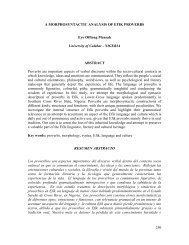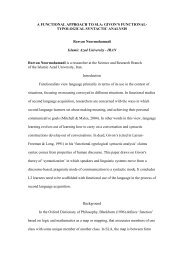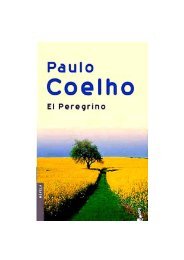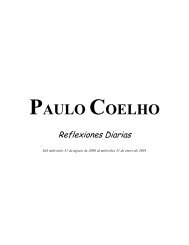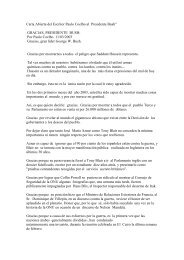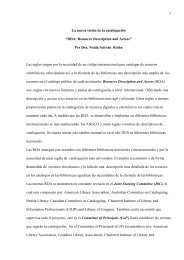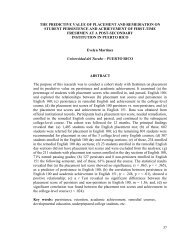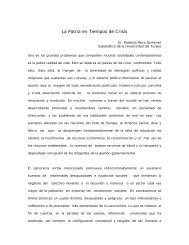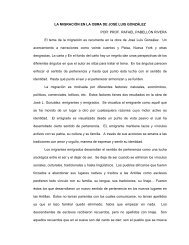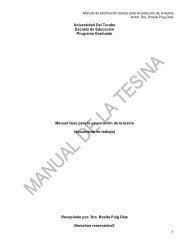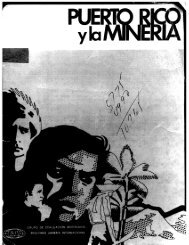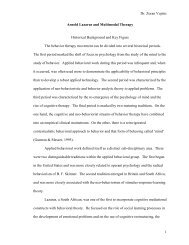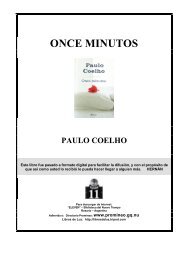Jennet Rodriguez Betancourt
Jennet Rodriguez Betancourt
Jennet Rodriguez Betancourt
Create successful ePaper yourself
Turn your PDF publications into a flip-book with our unique Google optimized e-Paper software.
glimpses of the past; whereas, a reading or re-visiting of the stories, will surely shed<br />
significant light on the prevalent colonial conditions of the times. To have masqueraded<br />
using the marginalized jíbaro as trope was perhaps Alonso’s only and finest way to carry<br />
out his project.<br />
“De la entraña nativa le salían los humores aconsejados por el ingenio; y su<br />
inconformidad solía despistar a la censura porque iba a su trabajo montada en<br />
ocurrencias. Sus escritos en general llevaban la música por dentro como todos<br />
los puertorriqueños. A poco de levantar el manto de donaires se verán en su<br />
obra la índole pedregosa de nuestra situación; y la única manera que teníamos<br />
entonces para exponerla sin peligros” (Pedreira 157).<br />
Because of Puerto Rico’s colonial status, the island has always exhibited a cultural<br />
struggle and this condition has always been present in its literature. It is through this<br />
valuable tool that testimonies, histories, cultures, and the narrations of a nation are<br />
recorded.<br />
El gíbaro de Manuel A. Alonso Pacheco definitely offers an invitation to visit or<br />
revisit the texts of other Puerto Rican writers who have included the topic of the jíbaro in<br />
their narrations. Guerra states that Alonso documented jíbaro culture as he saw it, while<br />
the writings of Zeno Gandia and Salvador Brau in the 1880s and 1890s “sharply<br />
criticized and degraded it” (56). Sociologists Miguel Meléndez Muñoz and Jose<br />
Colombán Rosario researched jíbaro culture and both have offered valuable contributions<br />
for further study. This topic has especially awakened an interest not only in the jíbaro<br />
representation, but more so in the representation of the Puerto Rican jíbara.<br />
In Esmeralda Santiago’s When I Was Puerto Rican, the author calls the<br />
autobiographical protagonist of her memoirs (Negui) a jíbara. Her stories are full of<br />
21



